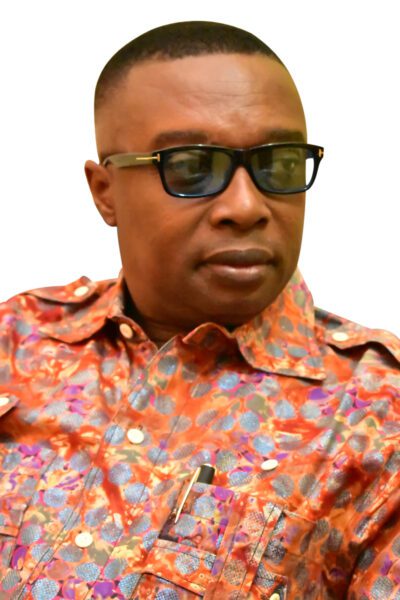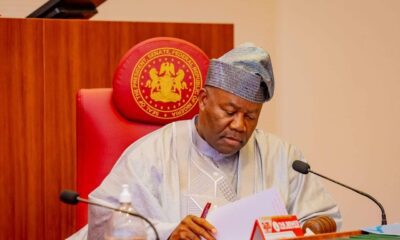National Issues
Are EndSARS Protesters Patriotic? -By Adewale Kupoluyi
This imbalance did not just start. It had been a recurring decimal since the 1914 amalgamation that brought in reluctant partners to cohabitate and fuse into union of convenience by the Colonialists. It should be appreciated that the collective attempts at reviewing this marriage of strange bedfellows have not yielded much fruit.

The agitation for the scrapping of the police Special Anti-Robbery Squad (SARS) continues to gain momentum, not only within the country but beyond the shores of Nigeria by youths and young men and women across the board. The police are notorious for brutalising, assaulting, maiming, and killing the people indiscriminately in the course of discharging their duties. At variance with the Nigerian legal system’s presumption of innocence, but for the police, the reverse is the case.
The Nigeria Police Force is grossly underfunded and equipped with a large chunk of its personnel deployed to very important persons. Recruitment into the force does not allow for competence, quality, and merit. Policemen are made to purchase their uniforms while their offices and barracks are poorly managed, among other problems. The menace of fraudsters popularly called Yahoo Boys not only tarnishes the good name of the nation; victims of fraudsters are humans that do not deserve to be swindled of their hard-earned resources. SARS personnel often swoop on innocent people, who are mistaken for fraudsters. Any young man with a smartphone, laptop, dreadlocks, and tattoo, faces the risk of being profiled as a fraudster, arrested, extorted by security agents, and given jungle justice. SARS operatives have also been allegedly used by the aggrieved to settle personal scores.
A-2019 public survey by the Socio-Economic Rights and Accountability Project (SERAP) ranked the police as the nation’s most corrupt institution while Amnesty International revealed a disturbing pattern of abuse of detainees in SARS custody despite the existence of the 2017 Anti-Torture Act that criminalises torture in Nigeria. In 2017, Nigerians launched a massive campaign demanding an end to police oppression and human rights violations and in the following year, the Federal Government ordered an immediate reform of SARS that was aimed at ensuring improved accountability, but there has not been a noticeable difference since that time even with the recent transmutation from SARS to the Special Weapons and Tactics Team (SWAT).
It is not contentious, therefore, to say that the entire police force needs total reformation. Aside from very few police officers that are humane and dutiful, other security agents such as the armed forces are not left out of the illegal use of arms and brutality against civilians. Inter-agency collaboration is almost non-existence as far as national security is concerned. National security is beyond the maintenance of law and order. It covers the wellness, peace, development, and general security of the nation and the people. No matter how well a nation is policed, if other factors are not well taken into consideration, the task of securing lives and property becomes a mirage. There can never be virile nation security when the teeming productive populace is unemployed and poor. Apart from the continued killings of innocent Nigerians, high level of joblessness, the prices of goods and basic commodities are exorbitant and workers’ earnings hardly take them home, except political office holders that live big. The complexity of these problems questions the rationale for the existence of the government as an agent of the state.
Many people are unhappy that national wealth is badly undistributed to the extent that only a tiny segment of the country appears to be benefitting, contrary to the pluralistic nature of our society with over 270 ethnic nationalities, diversity in cultures, varied faiths, and mutually-exclusive historical experiences that allow for federalism as the appropriate form of government. What do we have? The distinct nationalist policies have competed for primacy in defining the country’s political future in which pro-restructure advocates have been calling for devolution of powers while the antagonists would rather prefer the preservation of the existing, lopsided, and unjust system by maintaining the status quo. It is this distortion that is accountable for bad governance that is being witnessed in all facets of our national life.
This imbalance did not just start. It had been a recurring decimal since the 1914 amalgamation that brought in reluctant partners to cohabitate and fuse into union of convenience by the Colonialists. It should be appreciated that the collective attempts at reviewing this marriage of strange bedfellows have not yielded much fruit. The series of past conferences, constitutional amendments, and national dialogues have been put hurriedly put together with a mixture of insincerity, optimism, and utmost suspicion. As it were, there has never been any successful intervention to harness the collective problems and fashion out lasting solutions. It is for this reason that the critical issue of national question would continue to beg for an answer and the call for restructuring becomes louder.
In this context, restructuring means fiscal federalism or resource control, state police, wider devolution of powers and monumental reduction in the cost of governance to make the three tiers of government productive and every segment of the political structure empowered. The current arrangement, which is a unitary system, masquerading as federation, has failed. The truth is that we have many things dividing us as a people than the false unification that we profess. It is on this premise that the protesting youth may be seen beyond the prism of anti-SARS to the manifestation of anger, mistrust, disenchantment, frustration, and disappointment with the state of affairs in their dear country that is blessed with abundant human and material resources but is dysfunctional and largely rentier. What we are witnessing is a patriotic show of anger by the youths against a perceived injustice by the older generation. Today, the youth do not have a say in governance. The entire politico-economic space is occupied by old people and their anointed candidates. This neopatrimonialism, a feature of a weak democracy, is antithetical to the enthronement of an egalitarian society that caters for the well-being of all citizens irrespective of class, tribe, gender, and age. Unfortunately, this exercise is happening now when the nation is still preaching Coronavirus disease (COVID-19) social distancing despite the gusto, passion, and zeal displayed by the agitating youths, as more prominent Nigerians, are daily joining and supporting the protests.
The killings and harassment of youths should end and we should collectively stand to defend their rights responsibly. The government should avoid using any force or intimidation on the protesters otherwise; it could snowball into national unrest that may never be curtailed. The right to protest has constitutionally been recognised as one of the citizens’ inalienable rights and cornerstones of liberty. It is understandable that to protect public safety, order, and security, the police should strike a balance between these guaranteed rights. The responsibility is never a licence to constrain the right to peaceful assembly and protest, as there are subsisting court rulings recognising the right to peaceful protests in Nigeria.
As a starting point, the Federal Government should revisit the most recent outcome of national dialogue, which is the 2014 national conference. The argument that the legislature is capable of amending the defective 1999 constitution should be kept aside. Nigerians should be allowed to sit down and decide on how they want their nation to be governed. We should not miss this opportunity again. The youths should marshal their points and appoint representatives for likely dialogue with the government without further delay. The way to go is to be open, sincere, and win the confidence of not only the youths but Nigerians in general that the existing crop of leaders is truly ready and capable of bringing about real ‘change’ and good governance.
Kupoluyi writes from Federal University of Agriculture, Abeokuta (FUNAAB), Ogun State @AdewaleKupoluyi
















